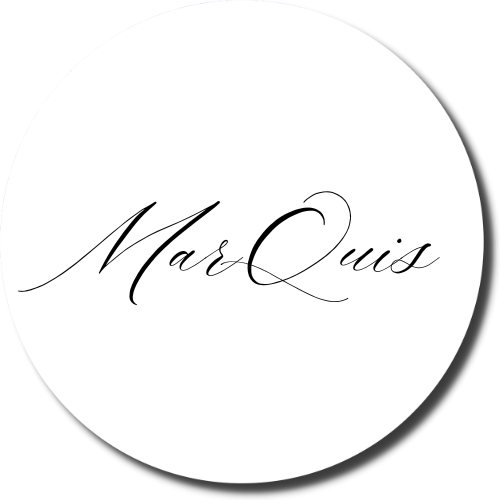I’ll say it for the record: EVERYONE HAS THEIR OWN PATH. While this is a commonly accepted truth, let’s consider it through a more relatable lens—just as everyone has their own path, “everyone will have to take a piss.” (Just keeping it real.) “Taking a piss” does not, however, equate to “pissing on someone.” Which is to say that even though we each have our own path, none of our paths have to be violent, lacking compassion, or insensitive to someone else’s.
While each of us indeed walks our own path, it’s crucial to recognize that this individuality does not grant us the freedom to disregard an essential truth: When we hold anyone in our presence, we have just crossed paths with someone who, like us, has become a very necessary and immutable component of the path we are on. We are both critical to the journey.
As we contemplate the complexities of our paths and relationships, a question I received last night captures these ideas perfectly. I thought I’d share it with you, along with an expanded answer…
Question:
“I’m reading ‘Gandhi’s Way to God,’ and Gandhi says truth is the source of character and that silence is a part of the spiritual discipline of a votary of truth. Proneness to exaggerate, suppress, or modify truth is a natural weakness of man, and silence is necessary to surmount it. Can’t silence in relationships sometimes reveal the truth?”
Response:
This brings us to an important aspect of any relationship: mutual respect. Here, individualism takes a backseat, as agreement and understanding become the foundation. “How can two walk together except they are agreed?” is the question offered in the ancient Hebrew tradition. Even in music, there are rests—pauses and moments of silence—to give space to breathe, listen, and support. In music, though, there is agreement on the silence. Where would the music be if one designated to offer voice chose to be or remain silent? Conversely, in the moment when one was designated to be silent and yet chose to impose voice against the natural flow, where would be the order in that?
“Speak only if it improves the silence.” —Mohandas Gandhi
Moreover, silence, when used thoughtfully, can become a powerful tool. Leaders, in particular, understand that silence builds character rather than amassing dominance and unnatural submission. There is great use of silence in relationships, to be sure, but making good use of silence is not the same as what is known as “the silent treatment,” which is a hostile and violent act on any relationship. We use the silent treatment when we feel a loss of power or a perceived threat. Silence can give light in relationships when the silence is not exaggerated. Conversely, silence is useful when confusion is present, and the opinions of the relating persons become exaggerated. Silence is a way of hearing the music in our partner—the music.
Shifting our focus slightly, the idea of taking a hiatus also raises intriguing questions. You asked, “Can a hiatus be just as truth-revealing?”
It’s perfectly alright to take “time off.” This is the purpose of a hiatus or sabbatical. They are temporary by design; they are not meant to be permanent or destructive. They are designed to be cathartic and restorative. The return is inherent, and if it’s healthy, it should be communicated as such. We have examples of this with many of our service professionals—votaries, professors, doctors, judges, ministers, etc. It would be unkind and counterintuitive to just leave without notice or plan. The same is true in relationships. To just up and leave without notice is rude. To leave without mindfulness as to the effect of one’s presence is also rude and lacking compassion. Let’s be clear: a leave of absence is not the same as being AWOL.
This hiatus can be truth-revealing. Is this the purpose, though, or are we just taking leave to get away from what is uncomfortable or inconvenient? The revelation of truth is present and available to those who are open to “see.” It could quite easily elude any of us abusing silence or mistaking silence for the silent treatment. Silence is not the absence of communication; it is better seen as the absence of interruption to the natural flow and way of being. We choose silence as a preventive measure and as an answer to noise—cacophony, confusion, and catastrophe.
As we wrap up these reflections, it’s worth considering the deeper purpose behind our actions. Whether it’s taking a sabbatical from our profession or a hiatus from a relationship, the question remains: Are we seeking to escape who we are, or to become better versions of ourselves? Should we take a hiatus from a relationship as a ruse to abandonment? So how do we know when it’s time to step away or abandon a relationship? When is love not enough? When is it clear that there is no possible shred of hope to procure better ways of relating and being with partners, friends, and lovers?
We have not stepped away from any relationship as long as we hold thoughts of our relating partners. If we have chosen to walk away, we have chosen to attempt an adjustment on how we actualize or bring body to that relationship. One needs to rethink this. We need to rethink this. Your partner is not your enemy, and if this thought becomes all too pervasive, it may just be time for a hiatus. Whenever we can be convinced that anyone is our enemy, if we believe this, we will treat them like an enemy and confirm for ourselves that we are threatened and that we must take action against them. Oftentimes, the result is abandonment. This need not be.



